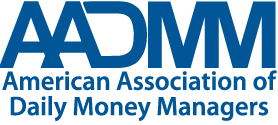
You are not alone if you didn’t get around to setting your financial goals before the 2021 new year began. (After all, there were a few things going on in the world…). But it’s never too late to plan.
Goal Planning Makes Success More Likely
“People who write down their goals are 1.2 to 1.4 times more likely to achieve them.” — Forbes
Writing down your goals can immediately make you feel better — as well as making it more likely you will succeed in achieving them.
“Research has shown that envisioning the steps necessary to complete a goal reduces anxiety, increases confidence, and lead to more effortful actions. Further, goal setters feel closer to the end goal in terms of time when they envision success rather than failure.” –Association for Psychological Science
What is a Financial Goal?
Any plan you have for your money can be a financial goal. For example, a short-term goal can be to meet your budget for this month, while saving enough each month to invest for retirement is a long-term financial goal.
Ideally you will have a mix of goals and potential tactics to achieve them. You want your goals to give you focus and keep you accountable, not to gather dust in a drawer or weigh you down.
Where to Start
Daily money managers are often asked to help their clients handle many of the details of implementing financial goals but if you haven’t set financial goals in the past, getting started can be a challenge. In addition to seeking professional help from a certified financial planner, a good DIY resource is the Financial Fitness Quiz [pdf] from Rutgers University.
Ten Financial Goals to Consider for 2021
Now is a perfect time to plan and set a few obtainable goals. Here are a few suggestions to get you started:
- Revisit your budget or create a new one. After year-end is an ideal time to assess spending and determine if a budget adjustment will help you meet your financial goals, but you can do it any time of year.
- Consider using less paper and avoiding mail delivery problems by switching to electronic versions of statements. Be sure to keep a list of passwords in a safe place.
- Evaluate accounts to see if any can be closed or consolidated. Eliminating extra accounts will mean fewer 1099s and service fees.
- Automate routine bill payments to eliminate service interruptions. Create a bill checklist to be sure critical payments are not overlooked. For instance, if a home equity payment bill is not received, could you set it up automatically or put a reminder on your smartphone’s calendar?
- Create an emergency cash fund to cover 3-6 months’ worth of living expenses. One option is to put a specific amount from each paycheck into a separate account, using automatic transfers. Alternatively, you can use bonus checks, rebates, or tax refunds to fund your “rainy day account”.
- Evaluate your filing system. If something happened to you, would your relatives know where your important documents are located?
- Review all financial documents including mortgage, retirement plans, Health Savings Accounts (HSA) and other investments to determine if changes are required to adequately diversify and be tax efficient. Also, review auto and home insurance coverage to see if you can save money by combining your coverage so everything is insured with the same company.
- If you receive a pay raise, consider putting the extra money in a savings account or use it to pay down credit card debt.
- Monitor your credit report. Request your Free Credit Report and fix any errors.
- Be sure to update (or create) your estate documents, e.g., wills, trusts, power of attorney for health care and for finances, and your child’s guardian. Also, make sure named beneficiaries on all life insurance policies and financial documents are current.
Whether or not 2020 was a good year for you emotionally or financially, 2021 can be better if you start now. Remember that it’s never too late to plan!
Resources
Trying to Get Ahead? Plan in Reverse, Research Suggests, Association for Psychological Science
Rutgers Cooperative Extension Financial Fitness Quiz [pdf]
————
Susan St. Angelo of My Trusted Partners, LLC provides daily money management services from Indianapolis, Indiana. For more information: www.mytrustedpartnerllc.com.











